If you are unable to recall the facts of your case, but want to take advantage of a plea offer, then a Norgaard plea may be appropriate. Norgaard covers situations where the defendant was too intoxicated at the time or just flat out does not remember what happened. This differs from an Alford plea in which a person maintains their innocence, but believes there is enough evidence to convict them at trial.
Norgaard pleas often come into play when a person was so drunk or high at the time of the incident and cannot remember the events. In many incidents involving drugs or alcohol, such as DWIs and drug possession offenses, this can happen fairly often. The quagmire becomes when a defendant wants to take a plea offer from the prosecution, but has to admit to what happened in the case. They are placed under oath and asked whether they remember the events in question. Not wanting to lie and commit perjury, a Norgaard plea allows people who do not recall what happened, to still take advantage of a plea offer.
Minnesota appellate courts do caution that Norgaard and Alford pleas should not be the common plea. They advise only using them in limited circumstances when alternatives are not available. Additionally, proper procedures need to be carefully followed when entering a Norgaard or Alford plea. First, state on the record that a Norgaard plea or Alford plea is being entered. A mundane, but sometimes overlooked, simple task to make the record clear.
Further, for a Norgaard plea to be accepted, a series of questions should be asked of the defendant. This includes:
- Whether they know what a Norgaard plea is;
- Whether they have reviewed the discovery, police reports, complaint, any audio and video;
- If they recall the events in the discovery;
- If they were intoxicated, or otherwise do not remember, the incident in the discovery;
- Do they doubt the accuracy of the allegations in the discovery;
- That if the case went to trial, they understand the prosecution’s witnesses would testify as to what is contained in the discovery;
- That the evidence submitted at trial would be sufficient for a jury to find them guilty beyond a reasonable doubt;
- They are pleading guilty to accept the plea offer;
- Whether they are pleading freely and voluntarily; and
- Whether they are claiming innocence.
The main reason to follow the questions above is so that the judge accepts the plea offer. Secondarily, it preserves a solid record in case the validity of the plea is ever challenged on appeal.
Not knowing what to do in your case can be difficult. If you do not remember everything that happened in the incident you were allegedly involved in, then it can be even more stressful. For a free consultation about your case and to discuss your options, please contact Ambrose Law Firm, PLLC by phone or text: 612-547-3199. You can also fill out the contact form below and one of our attorneys will contact you soon.
